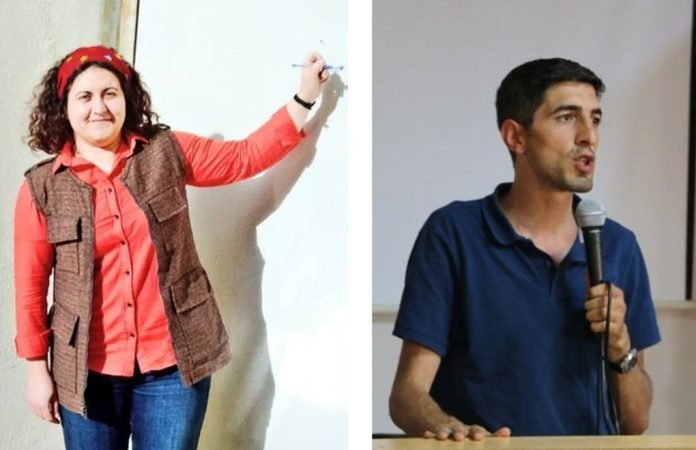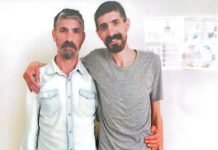Two inmates in Turkish prisons staging hunger strikes said they would continue their protests despite their health having deteriorated considerably, the Duvar news website reported.
Sibel Balaç in Sincan Prison has dropped from 85 kilos to 55, while Gökhan Yıldırım in Tekirdağ F-Type Prisonhas dropped to 44 kilos from 62. Yıldırım also suffers from damaged veins, bodily rashes and insomnia.
In a previous statement the Ankara Medical Chamber had said both inmates’ health had deteriorated and called on the Ministry of Justice to take the necessary steps to end the hunger strikes.
“The drastic weight change in both inmates indicates the beginnings of serious health problems,” representatives from the medical chamber said. “We worry that these inmates will continue their hunger strikes to the point of no return. The ministry needs to work out a way to address the inmates’ demands so they can end their strikes immediately.”
Balaç and Yıldırım have demanded fair trials. They also called for the release of critically ill prisoners and an end to arbitrary disciplinary punishments in prison. The two inmates further requested unlimited access to books and magazines.
The charges against Balaç and Yıldırım were not disclosed; however, both inmates demanded their release.
Yıldırım’s brother, Gökhan Yıldırım, said he would not abandon his hunger strike until his demands were met. “My brother is very sick, but all he wants is justice,” said Gökhan Yıldırım. “As his family we want his voice to be heard and this injustice to end.”
In an earlier interview, Yıldırım’s family said he only wanted to live as a dignified human being in prison.
Balaç was a former teacher who participated in the Yüksel Street protests in 2018. Balaç and other former public servants had been protesting human rights violations in Turkey and the purge of public servants after a 2016 coup attempt. They mainly gathered on Ankara’s Yüksel Street, in front of a human rights monument, to demand their jobs back
According to her family Balaç was subjected to a strip-search in prison before she was taken to the hospital. “She rejects such humiliating practices,” said her family. “Sibel repeatedly talks about the cruel and inhumane treatment in prison. She just wants it to end.”
The testimony of an increasing number of women detained on terrorism charges shows that Turkish security forces use strip-searches unlawfully and systematically to humiliate them.
The European Court of Human Rights has found strip-searches to constitute degrading treatment when not justified by compelling security reasons and/or due to the way they are conducted.
But the practice has frequently been used by Turkish law enforcement against people suspected or convicted of political crimes.
Moreover, the annual report on the violation of human rights in Turkish prisons by the Diyarbakır Bar Association revealed that rights violations increased in 2021 and that prison conditions had worsened.
According to the report mistreatment increased in prisons, but claims of mistreatment were not investigated and the perpetrators were often not held accountable.
In some cases inmates who wanted to obtain a hospital report documenting injuries sustained during mistreatment or torture were prevented from doing so by prison authorities. Prison doctors were also reluctant to issue reports confirming mistreatment.














